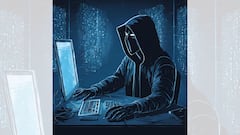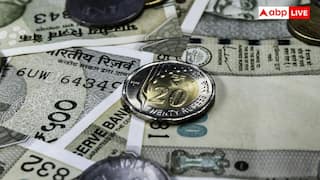Digital Disconnect: What To Do If Bingeing Netflix Into The Night Ain't Chill Anymore?
World Brain Day: Netflix and chill sounds great — but not at the expense of neurological well-being.

“Netflix and chill” — the viral phrase that became a calling card for consensual copulations had a rather simple origin. Back in January 2009, a user who went by the name NoFaceNina (@nofacenina) tweeted: “I’m about to log onto Netflix and chill for the rest of the night.” This is widely accepted as the first-ever recorded instance of the phrase, and interestingly, the tweet arrived just two years after Netflix started streaming movies online.
Now, let’s focus on the latter bit of the tweet — “chill for the rest of the night.” While that sounds great, especially after a hard day’s work, the concern that crops up is: if you chill for the night, when do you sleep?
If Netflix co-founder and executive chairman Reed Hastings is to be believed, sleep is the biggest enemy of the streaming giant. At a 2017 Netflix earnings call, Hastings said that rivals like Prime Video or HBO aren’t really major concerns.
“They’re doing great programming, and they’ll continue to do that, but I’m not sure it will affect us very much. Because the market is just so vast. You know, think about it, when you watch a show from Netflix and you get addicted to it, you stay up late at night. You really — we’re competing with sleep, on the margin. And so, it’s a very large pool of time,” he said.
As per a 2020 study published by SleepStandards, nearly 75 per cent of Netflix users don’t get enough time to cover even seven hours of sleep on a daily basis. The study further saw that 46 per cent of its respondents admitted that they were experiencing sleep problems after bingeing Netflix for hours.
So, it appears that Netflix ain’t so chill when it comes to sleep.
And it’s not just Netflix to be blamed. A 2022 study by Adelaide, Australia-based Flinders University found that YouTube could be more detrimental to sleep among teenage users than traditional TV or even Netflix. The study cited that 30 minutes spent on the app leads to a 13-minute overall delay in going to sleep. Furthermore, every 15 minutes spent watching leads to reducing the chance of sleeping enough by 24 per cent, as per the study.
A 2019 study by the Bengaluru-based National Institute of Mental Health and Neuro Sciences (NIMHANS) found that overt usage of smartphones during bedtime not only affects the quality of sleep but also intensifies cases of fatigue and insomnia.
Why Do We Need To Sleep?
If you still haven’t dozed off while reading this, you must be wondering why is this author droning on about how sleep is getting affected by streamers and smartphone usage.
Well, allow me to explain. July 22 is celebrated as World Brain Day. Established by the World Federation of Neurology (WFN) in 2014, World Brain Day is aimed at bringing public awareness to a different topic of neurological health each year. In 2023, the theme is brain health and disability. WFN believes that brain disabilities can be “prevented, treated, and rehabilitated” and global brain awareness could “reduce the disability associated with brain disorders.”

Now, we all already know that among several other things, routined sleep is one of the greatest requisites to maintain a healthy brain. After all, we spend nearly a quarter or even one-third of our human lifespan sleeping. So there must be a good reason for that, right?
As per researchers at Johns Hopkins University, a healthy amount of sleep is necessary for something called “brain plasticity,” which is the brain’s ability to adapt to input. “If we sleep too little, we become unable to process what we’ve learned during the day and we have more trouble remembering it in the future,” the university’s official blog post read.
Furthermore, our brain is best able to remove waste products from its cells when we are sleeping. If we remain awake, that process becomes notably less efficient.
So, How To Chill (read: sleep) Without Netflix?
The best solution — and probably the only logical one — is to cut down screentime when you are on your bed.
Smartphones, or any digital screens for that matter, emit light in blue wavelength, which keeps the brain alert and active just like light from the morning sky does. As per a study conducted by Harvard Medical School researchers, reading from an e-book resulted in extended sleep onset by an average of 10 minutes compared to reading from a traditional paper book.
Moreover, it was found that the onset of melatonin, a hormone that regulates sleep, was delayed by approximately 1.5 hours when reading from an e-book. Additionally, e-book reading was associated with a decrease in melatonin release by an average of 55 per cent. This reduced the amount of valuable rapid eye movement (REM) sleep by approximately 12 minutes and also affected morning alertness.
So, maybe keep a few episodes left for the next day. Finish up those extra game levels tomorrow. Netflix and chill sounds great — but not at the expense of neurological well-being.
Digital Disconnect is an ABP Live-exclusive column, where we explore the many admirable advancements the world of tech is seeing each day, and how they lead to a certain disconnect among users. Is the modern world an easier place to live in, thanks to tech? Definitely. Does that mean we don’t long for things to go back to the good-ol’ days? Well, look out for our next column to find out.
Check out below Health Tools-
Calculate Your Body Mass Index ( BMI )
Calculate The Age Through Age Calculator
Related Video
Apple creates a new record in iPhone sales after launch of iPhone 16 | ABP Paisa Live






































